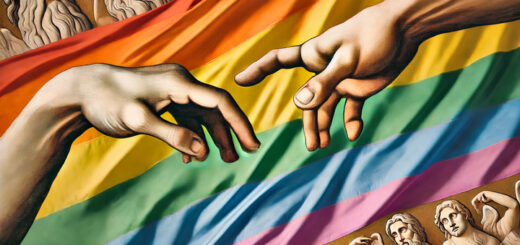Believers and homosexuals: a "periphery" that deserves attention in the Catholic church
Letter from the Jesuit Father Pino Piva and response from the director Marco Tarquinio published in Avvenire on 13 September 2016
Dear editor, a few weeks ago, together with others, I thanked you and 'Avvenire' for your ability to give space and a voice, discreet and respectful, to religious and homosexual people. Then, last May, I thanked you above all for an extensive journalistic report by Luciano Moia.
Now I want to do it again for your response – clear, respectful and, above all, truly Christian – to the various letters of 'protest' (from different points of view) in relation to your simple article about a homosexual couple, civilly united, who went to pray in Lourdes. I underline these statements of his: «In particular, I ask myself: how can one, absolutely, and without knowing anything about the lives of those other people, condemn as 'blasphemous' an intention of pilgrimage to Lourdes to give thanks for what is has it had in the course of one's existence? And how can we imagine and set limits to the love of Mary, mother of God and our mother? (...) I wish two people like this - who are believers, have lived together for over half a century and freely measure themselves with the demanding path that the Church (CCC 2359) indicates to homosexuals - all the best and I in turn dedicate a prayer" . In short, once again I find myself thanking you for these choices, and I ask 'Avvenire' not to distract attention from these realities of Christian faith and the search for God.
I believe it is very important to give voice to a part of the homosexual world (if we can call it that) to which no one ordinarily gives voice: people who try to live their condition in faith, both in chastity and in married life. They ask for understanding and listening from the Church, which they consider as Mother, because they believe that their experience of faith and love - however complex and 'frontier' - has something to say and to share with the life of faith of our communities Christian.
p. Pino Piva sj
The answer
I too thank you, kind and dear Father Pino, first of all for your pastoral action and then, naturally, for this cordial underlining of our information work also on the ecclesial 'periphery' inhabited by believers and homosexuals. A work, an in-depth study of themes, problems, paths and commitments that did not begin - as our readers know - last May, but already a few years ago, even if sporadically. In fact - I have no difficulty in saying it - it was the preparation and celebration of the two 'Synods on the family' which stimulated our attention towards these paths of faith as well and we dedicated space more frequently to the question of God experienced by brothers and sisters who live this specific condition and measure themselves - as I wrote on Sunday 4 September in the passage that you too, dear father, cite - "with the demanding path that the Church (CCC 2359) indicates to homosexuals".
Space for the question and space for the answers, not always simple, but always important, which germinate in different Christian communities. Why do I define the Catholic proposal as "demanding"? It is useful to reread and not only recall that precise point of the Catechism of the Catholic Church that I had evoked: «Homosexual people are called to chastity. Through the virtues of self-mastery, educators of interior freedom, through the support, at times, of a disinterested friendship, with prayer and sacramental grace, they can and must, gradually and resolutely, approach Christian perfection".
A point which is preceded by the one (2358) in which believers are told to "welcome" gays and lesbians who have met or seek Christ "with respect, compassion, delicacy" and avoiding "any sign of unjust discrimination". I would like to point out once again that "compassion" (literally feeling together, almost identifying with another person) goes beyond pure and simple respect, creates the conditions for the believing sharing that you, the father, speak of and are for each of us a challenging school of humanity and spirituality. Personally - I know my limits - I often ask God to be truly and serenely capable of such a good and beautiful feeling, and I always hope to be deserving of it.
Marcus Tarquinius






